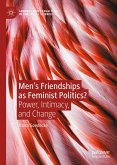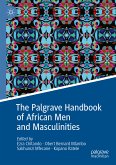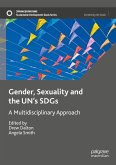In recent years, attacks on the rise of 'gender ideology' and 'genderism' as a political force, on gender studies as an academic field, and on feminist, queer and trans individuals seen to be their embodied representatives, have grown in scope and intensity. This edited volume understands such attacks as a global force in need of urgent analytical and political attention. Drawing on contributions from and about a varied range of geographical locations including Argentina, Chile, China, Germany, the Persian Gulf, Hungary, India, Pakistan, Peru, South Africa, Spain, Turkey, Uganda, the UK and the US, this book explores how anti-gender mobilisations work as a transnational formation shaped by the legacies of colonialism, racial capitalism, and resurgent nationalisms and how these can be resisted. By transnationalising our inquiries into the epistemic, affective and political nature of the anti-gender phenomenon, this volume troubles the 'origin stories' we tell about where anti-gender politics come from, and helps to better locate the various sources, actors, and networks behind these attacks, contesting the notion that anti-gender politics derive solely from right-wing nationalist or conservative religious actors, to show how they also derive from more centrist, liberal, leftist and even presumably feminist positions. The book thus invites us to sharpen and rethink the conceptual vocabularies and strategies we use to understand and resist anti-gender attacks, opening up space for envisioning new political imaginaries and transnational feminist solidarities.
Chapter 1 is available open access under a Creative Commons Attribution 4.0 International License via link.springer.com.
Dieser Download kann aus rechtlichen Gründen nur mit Rechnungsadresse in A, B, BG, CY, CZ, D, DK, EW, E, FIN, F, GR, HR, H, IRL, I, LT, L, LR, M, NL, PL, P, R, S, SLO, SK ausgeliefert werden.









